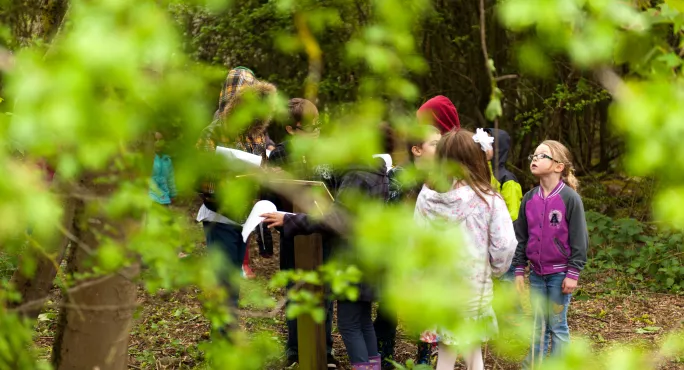As a child, I vividly remember a life outdoors. I remember building fires on tin cans with the Girl Guides, looking for natural treasures on a beach in North Wales and climbing steep-sided dells. I paddled in rivers, went crabbing, built sandcastles, rolled down hills and climbed trees. I recall experiencing the childlike feeling of wide-eyed excitement, spontaneous appreciation, and being full of awe and wonder at this magnificent universe.
Now, I am a mum to three beautiful boys. Every day is an adventure involving sticks, mud, bugs and bike rides, woodland walks and puddle jumping.
As educators, we are so often programmed to think of outcomes solely in terms of grades. Forensic analysis of test papers, scores and data is integral to ensuring we deliver on our promise of academic excellence at Ark, by placing learning and expert teaching at the heart of our endeavours. But our job is about so much more than that.
It’s about nurturing our pupils to become thoughtful citizens; providing our children with a plethora of rich experiences through trips and workshops, themed weeks and visitors; and affecting the way our pupils “turn out”.
There is a huge amount of evidence suggesting that our nation’s children are missing out on the pure joy of the natural world. And we know that this is exacerbated for children living in inner-city areas. There are countless examples of the mainstream media reporting on and bemoaning the current state of Britain’s children. Yet, despite all of the heat generated by this debate, little has been done or achieved to reconnect our children with nature.
50 things to do
In my current role, I have the means, motive and opportunity to make a significant change. Motivated by the research, my own drive and my desire for as many children as possible at our school to experience a natural childhood, I embarked upon the Ark Academy 50 things - a list loosely based on the National Trust’s campaign, 50 things to do before you are 11 ¾. Each experience has been woven seamlessly into the curriculum to ensure that every single pupil completes all 50 things by the time they leave us at the end of primary school, some of them many, many times over.
During their time with us, our pupils skim stones, build sandcastles, jump over waves, catch crabs and collect shells. They paddle and sail paper boats down rivers, play pooh sticks and fly kites. They make mud pies, clay sculptures, wild art and paint stones. They build dens, hunt for minibeasts, climb trees, and make fires and rafts. The list goes on.
One of our Year 6 pupils, Asmagh, tells us of her love for our outdoor learning: “I love school and I love learning, but I love the fact I’ve had the chance to experience the outdoors. I loved climbing trees and den building. Once, we saw a hedgehog and another time we saw a baby rabbit sitting in one of the dens we’d made.
“In Year 6, fire-making was awesome although scraping the steel and flint together was my biggest challenge in perseverance. Building dens, scavenger hunts and building a catapult needed us to combine our skills and work as a team. I’ll leave primary school never forgetting this stuff, and will be forever grateful and happy that I got to do it.”
We try to provide children with a richness of experiences beyond the classroom, not by adopting a tokenistic “forest school” label, but by creating a sustainable approach to outdoor learning embedded through whole-school involvement and enthusiastic staff and pupils. We have ensured that our pupils have the childhood experiences that all young people deserve, and for that we feel very proud.
Julie Harrison is assistant head at Ark Academy Primary in Wembley, London
